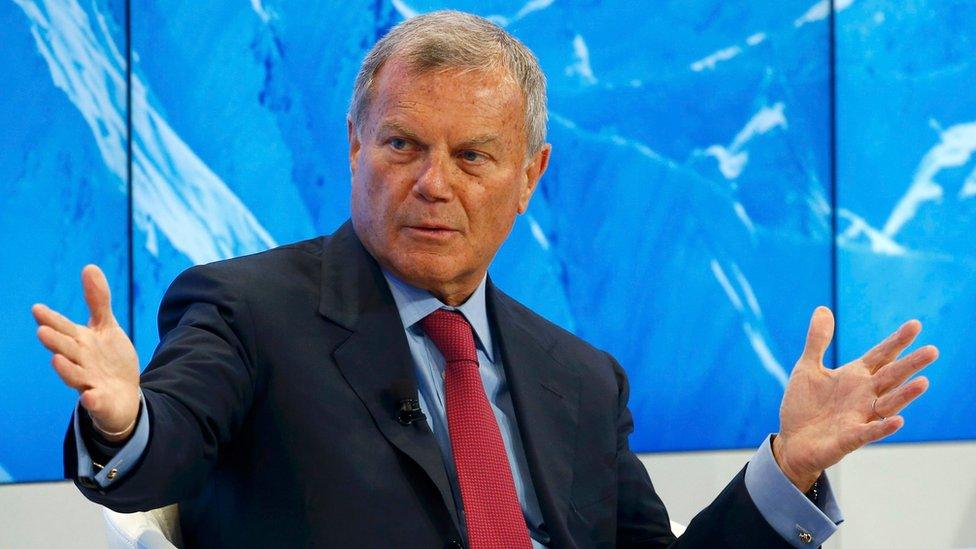WPP's Sir Martin Sorrell turned a tiny firm into a global titan
- Published
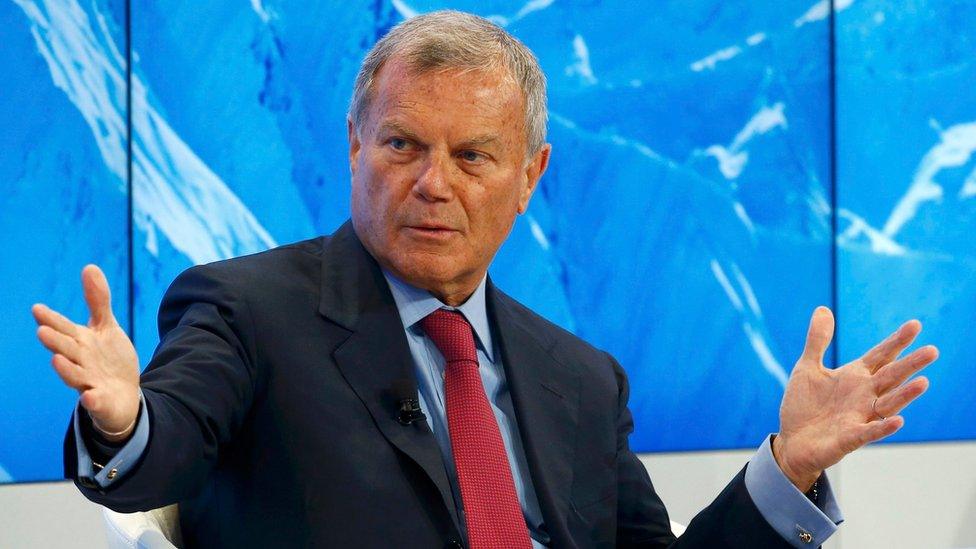
Sir Martin Sorrell, who resigned as chief executive of advertising giant WPP at the weekend, once said he would "carry on until they carry me out of the glue factory".
The 73-year-old was the longest serving chief executive of a FTSE 100 firm - and the highest paid.
Having taken over a small UK wire and plastics company more than three decades ago, he turned it into a multinational marketing giant with 3,000 offices in 112 countries.
But earlier this month, a question mark was raised over the future of his remarkable career when WPP opened a probe into allegations of misconduct.
That investigation into use of company money is now closed. And Sir Martin has always strongly rejected the allegations.
But it won't be the circumstances in which he would have preferred to retire.
Sir Martin bought a stake in WPP, then called Wire & Plastic Products, in 1985 and began a relentless pursuit of acquisitions and expansion that turned the small engineering firm into a global marketing and advertising powerhouse.
WPP is now the world's biggest advertising group, while Sir Martin has become an influential figure on the global corporate stage.
'Trailblazer'
As news of the internal investigation emerged, separate reports suggested some investors were agitating for a succession plan for the 73-year-old chief.
Sir Martin, who has faced criticism that he runs WPP as a personal fiefdom, is no stranger to controversy, particularly over his salary, which in 2015 hit £70m.
The size of the pay package sparked an unsuccessful shareholder revolt.
In one of the many defences of his lucrative pay deals he said his aim was to "start something from scratch and to build it into something of significance".
Sir Martin, knighted in 2000, was finance director of ad agency Saatchi & Saatchi when he left to join WPP.
Industry veteran Roger Parry says it was never Sir Martin's "original concept" to establish a global giant.
"But JWT (J Walter Thompson) came up for sale and he understood the stock market much better than anyone else in the industry. So, he was able to raise the money to buy it.
"And that was the start of his big advertising agency era," Mr Parry said.
In 1989 Sir Martin also bought ad agency Ogilvy & Mather - famously clashing during the takeover with co-founder David Ogilvy, another influential figure in the industry.
The dispute was not just seen as a clash of personalities, but also a clash of generations as a more expansionist and financially-driven approach took hold of the ad industry.
Unpopular
"What sets him apart [Sir Martin] is a ruthless, single-minded focus, and also an attention to detail that is probably unparalleled in the industry," said Marc Mendoza, formerly chief executive of Havas Media and a non-executive chairman of VCCP Media,
"He knows the ins-and-outs of every small thing that happens. My understanding is he answers emails directly, no matter what time of the day or night and he's a complete and utter workaholic," he said.
Key to WPP's growth was Sir Martin's use of acquisitions to set up a "one-stop shop" for major businesses for the first time in the UK.
Mr Mendoza said: "The thing he did differently is he played scale. He could go to people and say we're the biggest and we can give you the biggest discounts. [He] created a one-stop-shop at a time when people weren't doing that - that was a really unusual thing to be done.
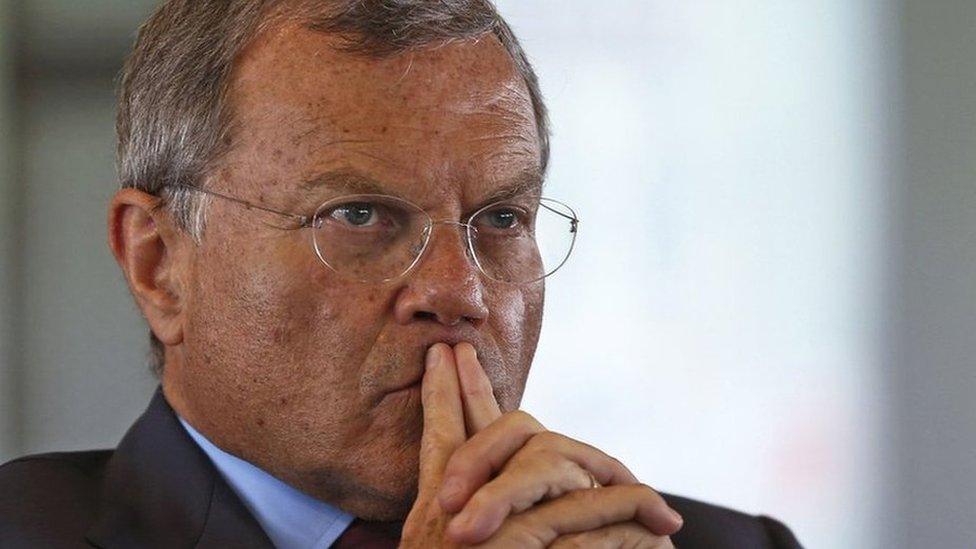
"Advertisers were used to boutique agencies, and suddenly this guy came along and said - I tell you what, we're going to put the whole thing together in one place and you can have everything you want. The acquisitions were very wise and he put the companies together very cleverly," Mr Mendoza said.
But you don't grow that fast and that big without creating enemies. One senior industry executive said Sir Martin was unpopular among some advertising professionals because they felt he cared more about financials than creativity.
Yet, Sir Martin is also hugely respected in the industry, not least because he has the ear of senior business leaders "precisely because he speaks the language of finance and operates on another level," the source said.
New threat
However, WPP, like the broader industry, is facing new challenges.
The industry executive told the BBC: "There are lots of threats to the industry. Amazon, Facebook, Google, and the rise of consultants like Accenture and Deloitte, are moving into this space.
"There has been a sense among clients that these huge network businesses that looked impressive now look big and cumbersome and not agile.
"You can now create a campaign without having offices all over the world, and the clients are paying for all these offices," he said.
Sir Martin built WPP into a global force because he saw a new way of doing things that allowed him to overturn the old order.
But is the WPP-way now outdated? The challenge for Sir Martin's successor is tackling the competitive threats from some new kids on the block.
- Published15 April 2018
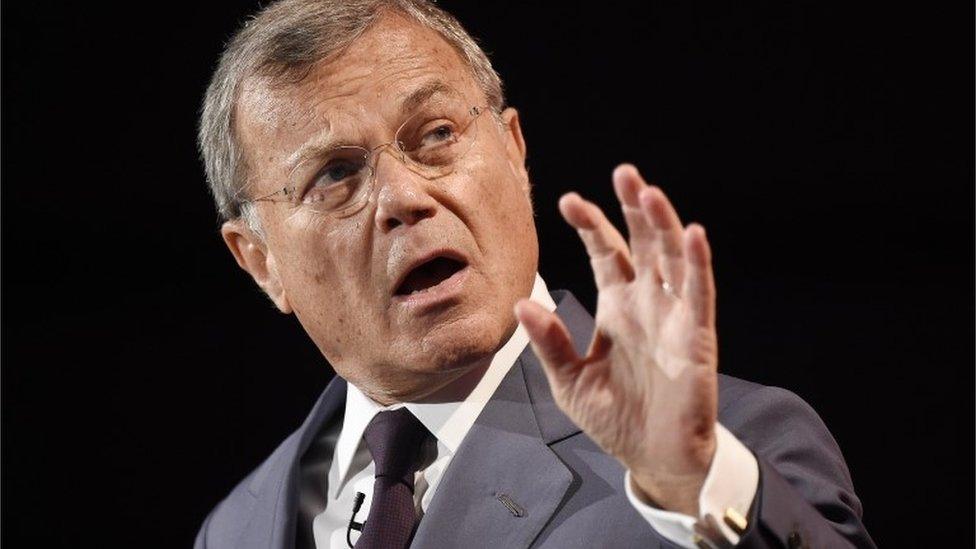
- Published15 April 2018
- Published4 April 2018
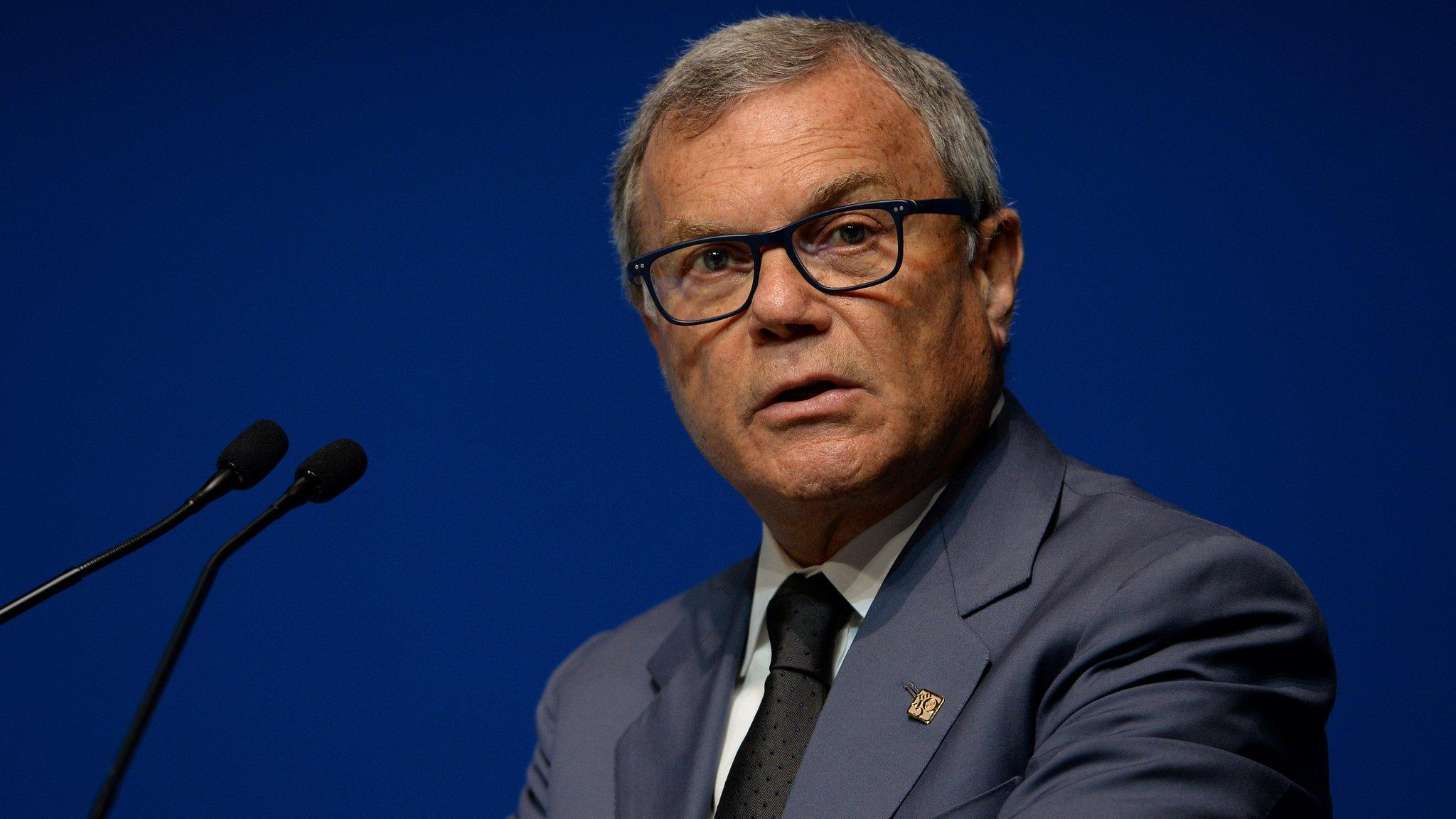
- Published13 February 2018
- Published3 March 2017
